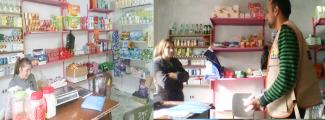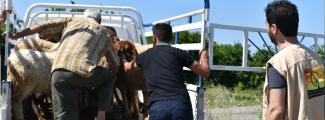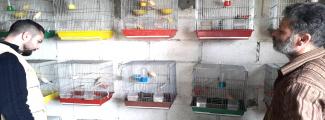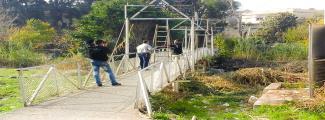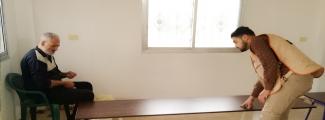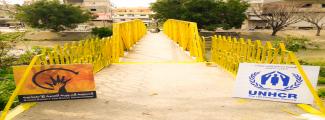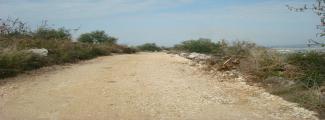Mrs. L S is a 39-year-old woman married to a 40-year-old unemployed man, Mr. A H. Her husband used to work in Aleppo until an explosion at his workplace in early 2017 left him incapacitated as a result of his left leg’s amputation and right leg’s bone fractures. Consequently, he returned to his former residence in al-Zallou village and settled there with the help of his wife, but was unfortunately unable to provide for his three children due to his condition. He was also going through physical therapy for his fractured leg to prevent its calcification.
After one of Mrs. L S’s neighbors told her about SSSD and the services it provides to the local community and expatriates, she went there without hesitation. Once there, she met with one of the specialized staff and explained her family’s situation. She expressed her interest the small business grants (SBG) programme that SSSD offers to the most vulnerable groups in society.
Hence, Mrs. L S registered for a small project__ a grocery store__ since they have a small room in front of their room located on the village’s main street, which is suitable for such a project. Although she is originally very skilled at sewing, but she gave that up and chose to open a grocery store instead for the sake of her husband, who was unable to provide for his family and feeling completely helpless.
The SSSD welcomed Mrs. L S’s idea and enrolled her for a 6-day Small Business Management Course. Later on, her project was supported and the room she wanted was fully equipped with grocery-specific equipment and materials to be sold.
Once Mrs. L S’s project was launched, people close to the shop were thrilled by the shop as everything they needed could be found there and it was located at a very strategic place. Also, customers started going there because of the excellent customer service and reasonable prices.
Since most customers come at night, Mrs. L S started purchasing all she needs in the morning from the market and let her husband take over instead. And so, the shop became lucrative and changed their lives both financially and psychologically, as she was able to provide her children’s school supplies without the help of anyone. The project has also had a great impact on their social life, since both Mrs. L S and her husband worked together and supported each other as one in face of life’s tough demands.

